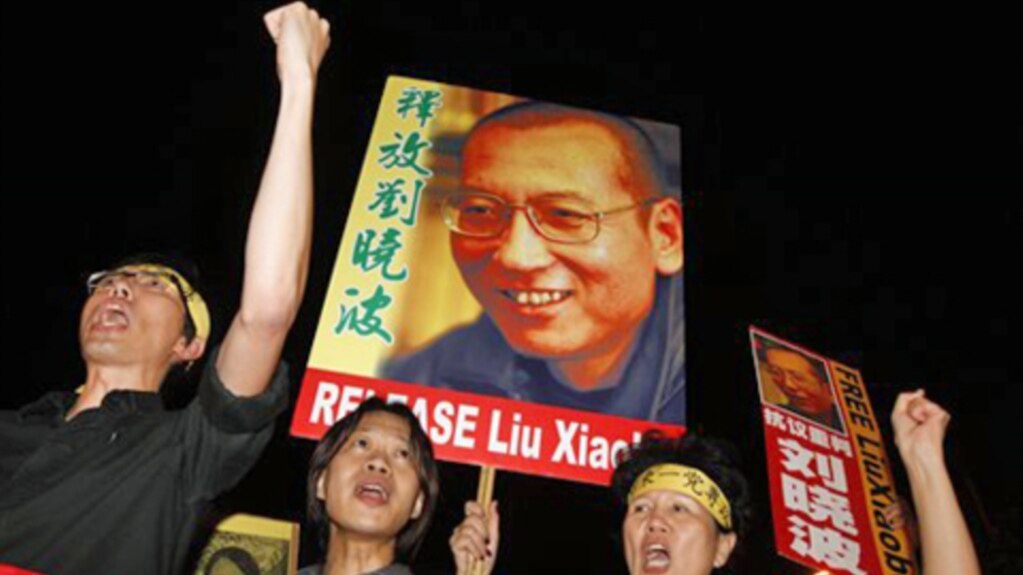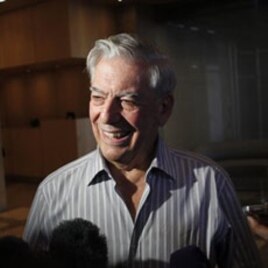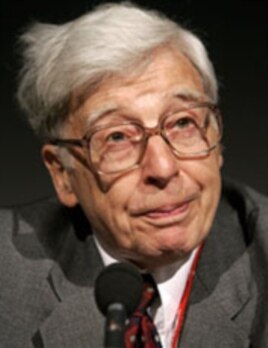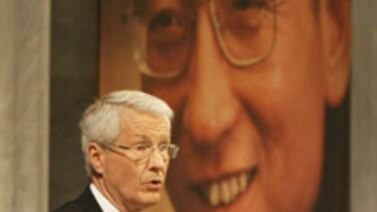
This is IN THE NEWS in VOA Special English.
This year's winner of the Nobel Peace Prize, Liu Xiaobo, is a fifty-four-year-old dissident and writer jailed in China. He was detained at the end of two thousand eight, before the release of a political reform document he helped organize. "Charter 08" calls for greater freedom of assembly, expression and religion. Last December he was sentenced to eleven years in prison for inciting subversion.
China says Liu Xiaobo is a criminal and that what he has done goes against the purpose of the Nobel Peace Prize. It says the award could harm relations between China and Norway.
But the Norwegian Nobel Committee said there is a "close connection between human rights and peace." Torbjorn Jaglund is the committee chairman.
TORBJORN JAGLUND: "China has become a very big power in economic terms as well as in political terms. And it is normal that big powers should be under criticism."

Writer Mario Vargas Llosa from Peru won this year's prize in literature. He has written more than thirty novels, plays and essays, including "The Feast of the Goat" and "Aunt Julia and the Scriptwriter." He lives part-time in Spain. And he is politically active -- he was a presidential candidate in Peru in nineteen ninety.
Mario Vargas Llosa is the first Nobel winner in literature from Latin America since Mexican writer Octavio Paz in nineteen ninety.
There are three chemistry prize winners this year. Two are Japanese, Ei-ichi Negishi of Purdue University in the United States and Akira Suzuki of Hokkaido University. The third is American Richard Heck from the University of Delaware.
They developed a process that simplified how carbon atoms are stuck together to produce new materials. Their methods are used to create everything from new drugs to electronics.
The three winners chosen by the Royal Swedish Academy of Sciences will share the award of one and a half million dollars in December.
This year's prize in physics goes to Russian-born Andre Geim and Konstantin Novoselov, both from Manchester University in Britain. They won for their experiments with a form of carbon called graphene. It started with a simple experiment, using sticky tape to pick up pieces of graphite, the same material found in pencils. That was only six years ago.
Graphene is just one atom thick, thin enough to see through, but extremely strong for its size. And electricity can pass through it quickly without much loss of energy. There could be many uses, from electronics to aircraft.

The prize in medicine goes to Britain's Robert Edwards for the development of in-vitro fertilization. With IVF, eggs are removed from a woman, fertilized in a laboratory and then placed into the womb.
This process has led to the birth of four million people since the first "test-tube baby," Louise Brown, in nineteen seventy-eight. The Catholic Church opposes IVF, in part because unused eggs are often destroyed.
The eighty-five-year-old scientist developed it with British surgeon Patrick Steptoe, who died in nineteen eighty-eight. Nobel winners must be living.
And that's IN THE NEWS in VOA Special English. I'm Mario Ritter.
Reporting by Kevin Billinghurst, David Byrd, Kane Farabaugh, Stephanie Ho and Carolyn Weaver
